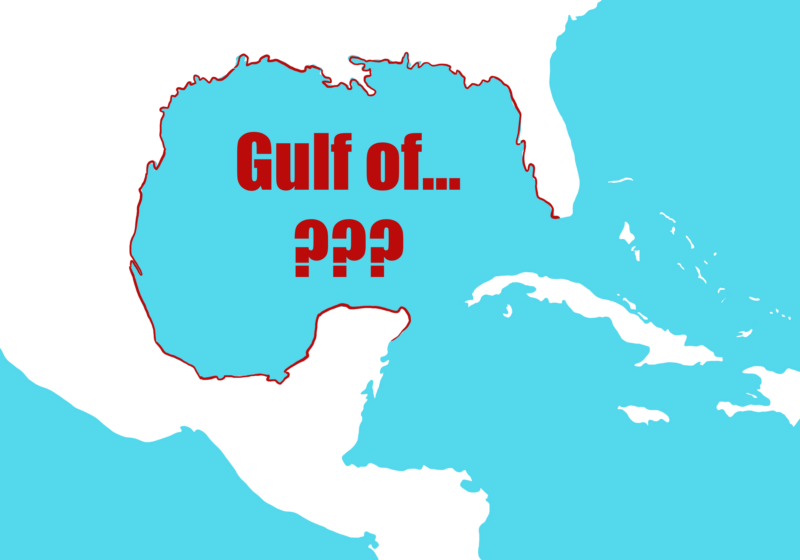On President Trump’s first day in office, he signed a number of executive orders, but the most laughable was the renaming of the Gulf of Mexico to the “Gulf of America.” The goal of this move, according to his administration, was to honor American greatness. Still, the political implications of this move raise serious questions about its intent and impact.
First, it’s worth noting that the name “Gulf of Mexico” was in use long before the United States was founded. To arbitrarily rename it as the “Gulf of America” is not only odd but downright insulting to many people — especially in Latin America. The renaming of such a historic body of water can thus be seen mainly as a political power play, a way to reinforce U.S. dominance in the Americas.
“America” is a complicated term. I can describe both North and South America together (the “Americas”), but often is used to refer specifically to the United States. And this seems to be the intention of our current President — therefore, renaming the Gulf of Mexico to the “Gulf of America” appears to be an attempt to minimize the shared identity of the entire continent by reinforcing the idea that the U.S. is the center of the Western Hemisphere.
This has long been a point of contention for many Latin Americans, who already feel uneasy with the U.S. tendency to claim “America” as a shorthand for just the United States. To them, it’s a slap in the face to every country that shares the continent, especially when “America” is meant to represent a collective identity, not a single nation.
From a logistical standpoint, renaming the Gulf of Mexico is no small task. The U.S. Board on Geographic Names, which is responsible for approving official geographic names, will need to update the Geographic Names Information System (GNIS) to reflect the new name. This means that government maps, federal documents, contracts, and any other relevant materials will have to be revised to remove any references to the Gulf of Mexico and replace them with the new designation. It’s a major undertaking that requires significant time and resources to implement, not to mention the potential confusion it will create for anyone who has spent their life using the term “Gulf of Mexico.”
Interestingly, many institutions wasted no time in starting to implement this change. Google, for instance, announced that Google Maps would be updated to show “Gulf of America” for U.S. users as soon as the change is reflected in official government sources, in accordance with long-standing company practices. Similarly, the National Weather Service’s Storm Prediction Center quickly began using the term “Gulf of America” in its forecasts.
Despite the speed at which these updates have been made within the U.S., there’s a big limitation to what this executive order can actually accomplish. Namely, President Trump can’t formally rename the Gulf of Mexico on an international scale. For the new name to be recognized globally, Mexico and the United States would need to come to an agreement. Mexico, as a neighboring country that shares the Gulf, has a strong opinion on the matter. In response to President Trump’s proposal, President Sheinbaum of Mexico sarcastically suggested that North America be renamed “Mexican America,” demonstrating her stance on this matter.
As it stands, the renaming will only apply within the United States and in federal documents. It will not have any formal recognition in international law or geography unless both countries agree to it, which seems unlikely given the tension this change has already sparked.
The renaming of the Gulf of Mexico may seem like a trivial issue to some, but it’s a decision that reflects broader political dynamics and ongoing challenges the U.S. faces in its relations with Latin American countries. This move is likely to further stoke resentment toward the U.S. in the region, especially among those who already feel that the U.S. places itself above the rest of American nations. It reinforces the idea of American exceptionalism, and furthers the increasingly accurate worldwide perception that the U.S. has no regard for its neighbors and allies. While the order’s official intent may have been to honor American greatness, it has collateral risks of deepening the divide between the U.S. and its neighbors.
In the end, while the renaming of the Gulf of Mexico may seem like a small, symbolic gesture, its political ramifications will likely be anything but minor. It adds fuel to the fire of anti-U.S. discontent many Latin American countries already feel, and it serves as a reminder that symbolic acts of power, no matter how seemingly insignificant, can carry a heavy weight in international relations.




